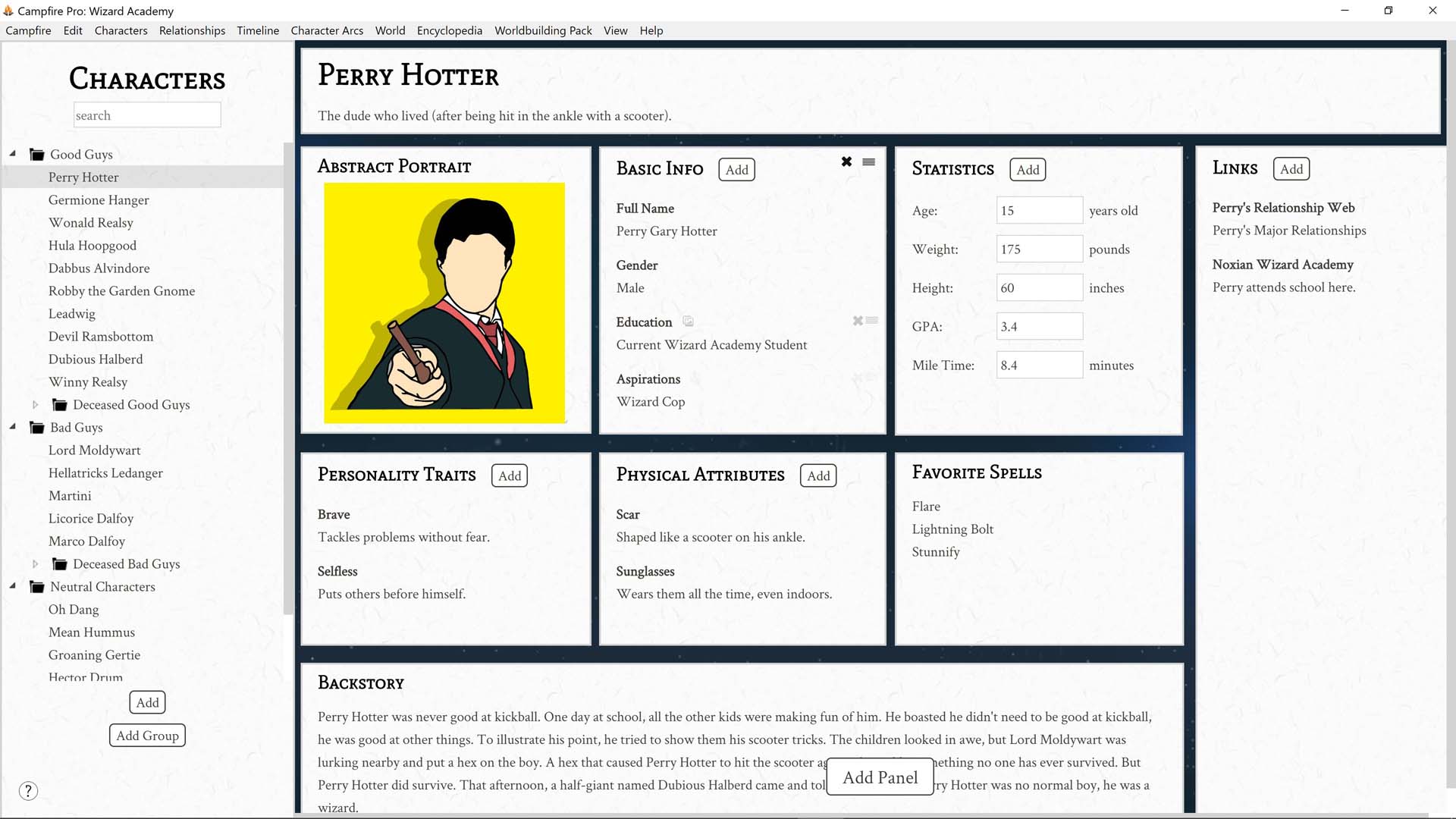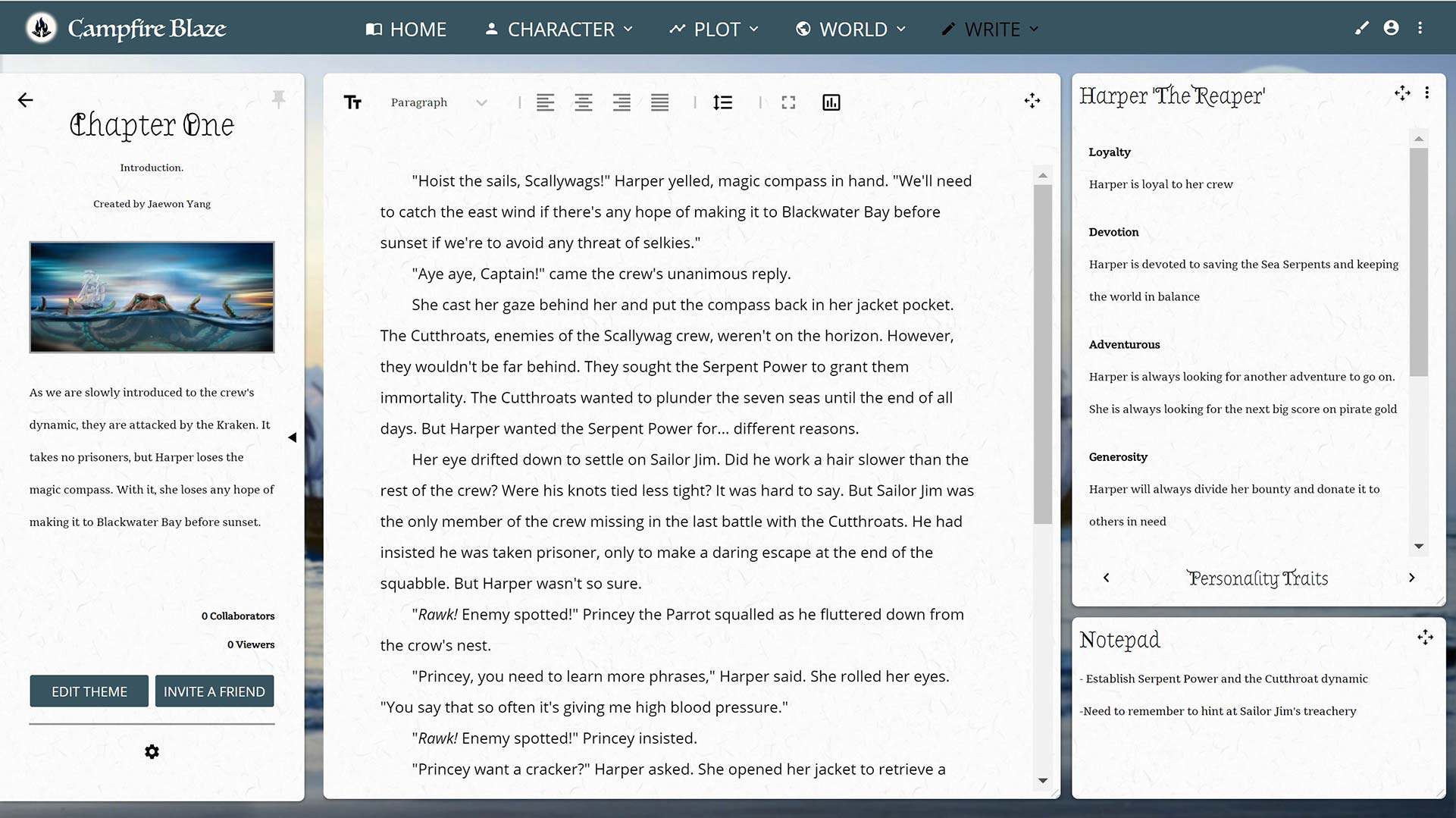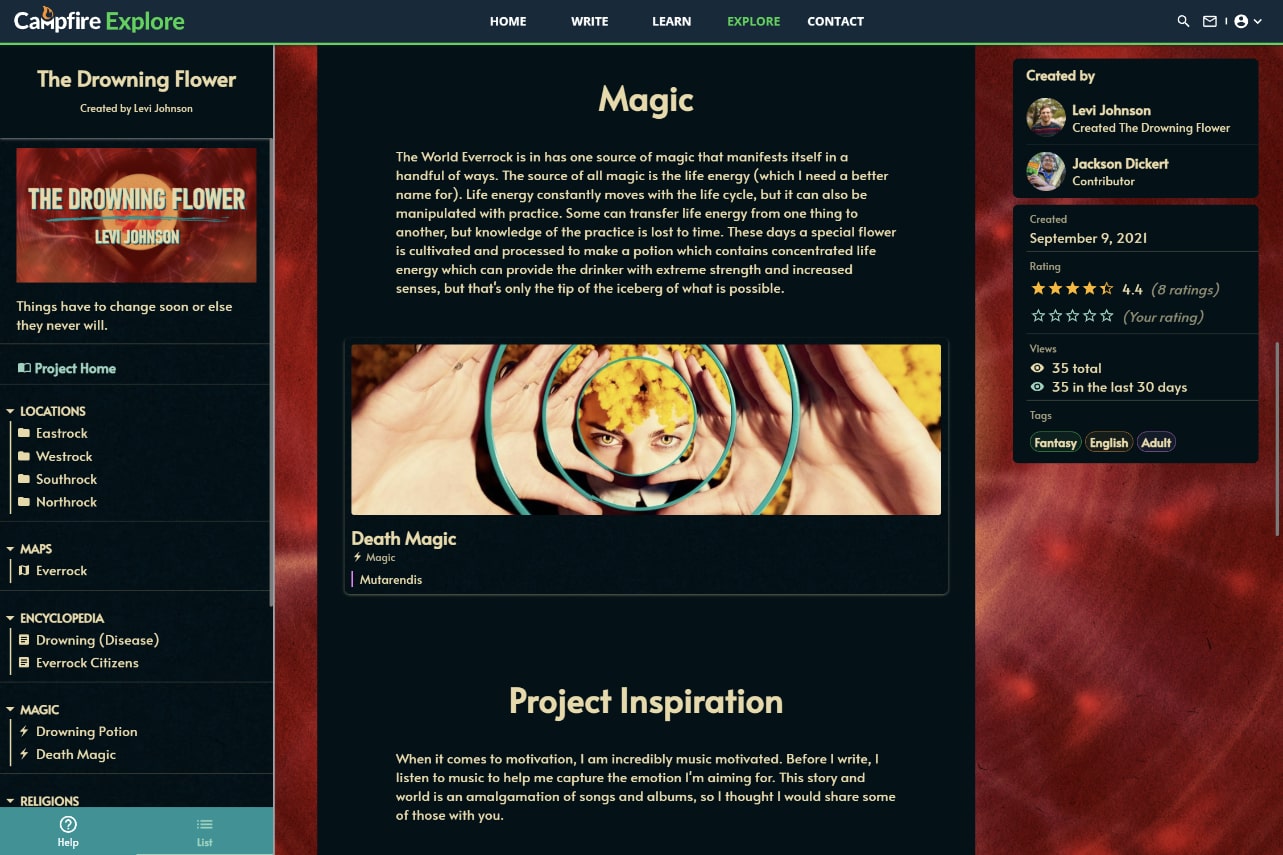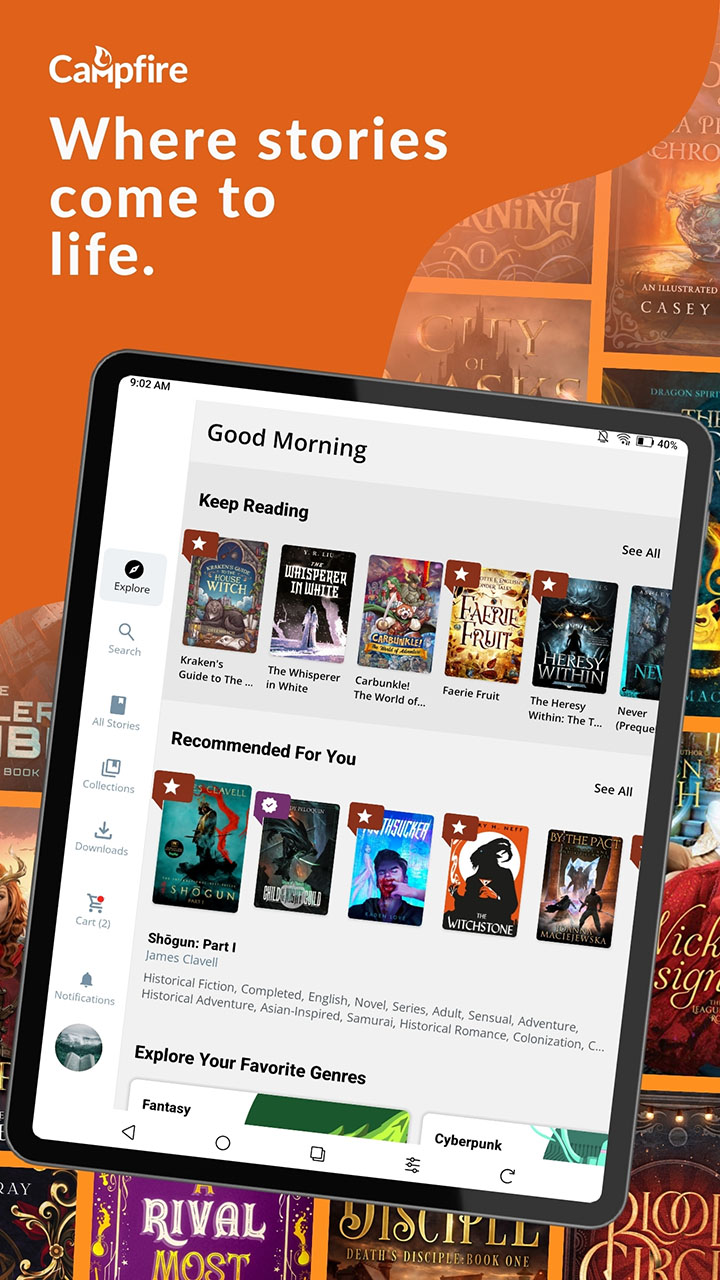In the summer of 2018, I was in between freshman and sophomore year at Northeastern, working at my old high school doing some programming work. During that time I decided I wanted to write a screenplay. This was quite in character for me, since I spent most of my middle school and high school years obsessed with filmmaking. But I'm also a very logical and organized person, and thus immediately went searching for the industry standard software that would help me develop and organize the characters, locations, subplots and so on that I would compose into a screenplay. I wasn't able to find anything that did this job well, and so like all the entrepreneurs that have come before me, I decided to build it myself.
Campfire Pro
The first iteration of Campfire was Campfire Pro, a downloadable desktop application with no cloud functionality (or even login). It was an Electron app I wrote that interfaced with local files on your PC. These files were just SQLite databases with some structured data like characters, timelines, maps, locations, etc. It was clunky and awkward and fairly buggy, and it didn't even have a way to write the screenplay - just to plan the story. But I built it in two months and put it on sale.

After barely selling any copies, things started to go my way when Jackson Dickert started working with me on marketing Campfire. He scheduled some risky YouTube sponsorships advertising the application that ultimately paid off, generating tens of thousand in revenue for single-digit-thousands of investment. As a college kid in his sophomore year, that was an insane experience for me.
I'm a fairly ambitious guy, so naturally by this point I was determined to grow Campfire into a million-dollar company, and after thinking about it for another few days, even a ten million-dollar company.
Campfire Blaze
The next step in the Campfire journey was to migrate to a cloud-based solution that included a manuscript editor for writing. By this point Jackson and I had realized that the software I'd built was actually better suited for novelists than screenwriters due to its focus on detailed world-building. To build the cloud version of the sotware, I hired a couple of my Northeastern colleagues through their co-op program using Campfire Pro revenue and earnings from a successful Kickstarter campaign. It took a year or so but we eventually launched Campfire Blaze. Like Campfire Pro, it was buggy and ugly. But people paid for it and we grew the Campfire community with more YouTube sponsorships and constantly engaging with our users on Discord and elsewhere.

This coincided with COVID-19, which locked a lot of people at home. As a result, lots of people decided now was the time to finally write that book they'd been thinking about writing for years. Campfire sales boomed as a result.
But Campfire Blaze had some clunky marketing and some clunky product decisions. By this point I'd started reading some business books and exposing myself to the startup world, and knew that some pretty major changes needed to be made if I wanted to take Campfire to the next level.
CampfireWriting.com
After working a lot on Blaze we migrated the application to campfirewriting.com (where Campfire still lives today) and rebranded a bit with a fresh new logo and more organized website. In addition to the writing software, we added a Learn section for our blog and an Explore section for publishing and reading other users' writing and worldbuilding projects. We also cleaned up the UI.

Over the next two years, we shipped more features for writers and revamped existing tools, gradually making the software cleaner, faster, and more powerful. We also launched a downloadable desktop app and a mobile app during this time.
Reading & Publishing on Campfire
In July 2023 we announced our goal to turn Campfire into the leading ebook platform for sci-fi and fantasy. This, for me, was our ticket to taking Campfire out of the small niche that is writing software and into the big leagues. After all, there are many more sci-fi and fantasy readers than there are writers.
For the following two years, we aggressively pursued this goal, staffing up to twelve employees and investing every dollar of revenue, and then some, back into the business. We built the entire ebook publishing and reading stack with Campfire's unique twist - being able to unlock and read extras like world maps, character profiles, illustrations, bestiaries, fantasy calendars and other rich content as you read the ebook. We partnered with hundreds of authors to get their work on the platform and created special editions with them that showcased Campfire's features. We built an app for reading and browsing Campfire ebooks on phones and tablets and advertised the app through our YouTube influencer network. We focused almost exclusively on this, letting the writing software mostly stay the same.

And it didn't work. Our core assumption - that readers being able to unlock extras while they read would be compelling enough to drive app installs, ebook purchases and ultimately higher earnings for authors - was never proven out. We weren't even able to scale the app past a few hundred weekly active readers. Sales were dismally low, even when we gave out free Campfire wallet funds to readers who were directed to our app specifically by their favorite authors. In the end, what we had to offer was simply not compelling enough to readers.
Where We Stand Today
In mid/late 2025 I made the call to stop investing heavily into the reading and publishing platform that was clearly not working. Going forward, we'll refocus on growing the writing software, which remains a top choice for sci-fi and fantasy authors. But over the last two years some parts of the software have grown stale and out of date, so we'll be fixing all of that up and making sure it's fast, stable, and pleasant to use. And we'll start advertising it again, after two years of almost exclusively advertising the reading platform.
I've been working on Campfire for more than seven years. It has had its ups and downs, and it's been messy, but I suppose anyone's first business is always destined to be that way.
I still intend to grow Campfire significantly, though it won't be getting 100% of my attention going forward. In 2026 that will take the form of making the writing software the hands-down best choice for sci-fi and fantasy authors. After that, who knows - maybe I'll take another crack at the publishing & reading side if the opportunity presents itself. But for now, the focus is on the core featureset and experience for authors.